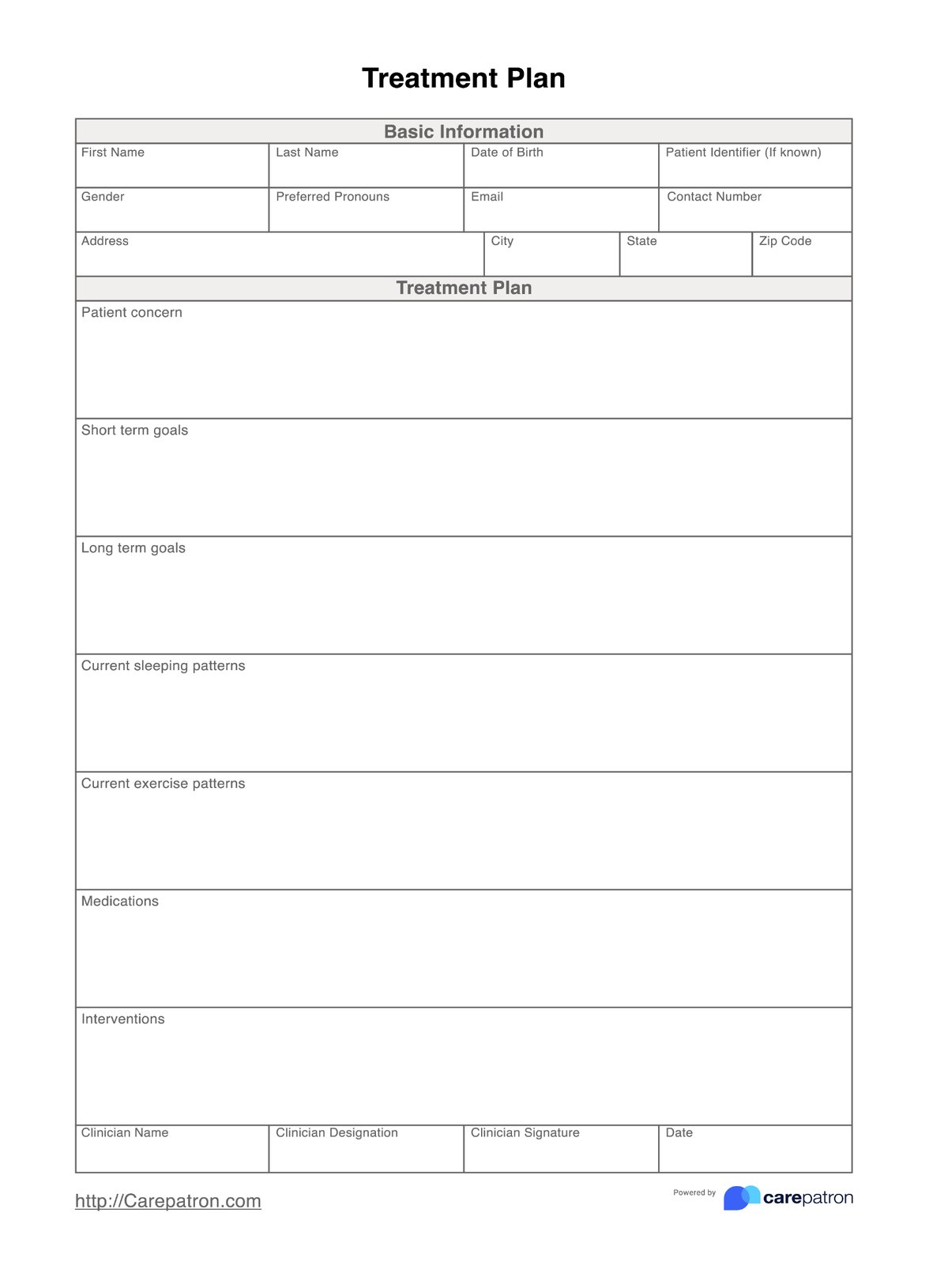A treatment plan typically includes a comprehensive overview of the patient’s presenting problem, relevant background information, SMART goals, planned interventions, progress measures, and review dates. These elements create a clear roadmap that guides treatment and helps clinicians accomplish meaningful change over time.

Treatment Plan Template
Create clear and effective treatment plans with our free Treatment Plan Template.
Treatment Plan Template Template
Commonly asked questions
Use the SMART framework, which means goals should be specific, measurable, Achievable, Relevant, and Time-bound. Example: Reduce panic attacks from 3× weekly to 1× weekly within 6 weeks. This ensures goals are trackable and tied to observable outcomes.
Treatment plans are typically reviewed every 4–12 weeks, or sooner if symptoms, risks, or circumstances change. Updates may involve revising goals, adjusting interventions, or adding new goals based on progress evaluations.
Yes. The chosen template is flexible and can be used across therapy, counseling, medical care, rehabilitation, and community services. Its structure can be adapted to your practice needs, preferred guidelines, and clinical practices.
EHR and practice management software
Get started for free
*No credit card required
Free
$0/usd
Unlimited clients
Telehealth
1GB of storage
Client portal text
Automated billing and online payments











